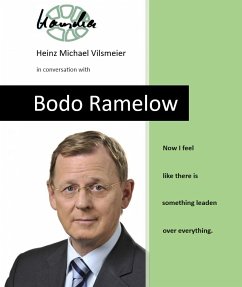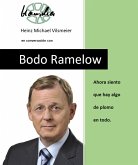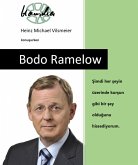With the words: "Now I have the feeling that there is a leaden weight over everything," Bodo Ramelow described the social mood in Germany on September 1, 2013, a few weeks before the federal election. At this time, Ramelow was still the parliamentary group leader of the Left Party (Die Linke) in the Thuringian State Parliament. With his "feeling," Ramelow, born on February 16, 1956 in Osterholz-Scharmbeck, Lower Saxony, was not alone. The society itself seemed on the verge of being crushed by a leaden burden, not just the mood within it. In those days, the final recourse of German politics had narrowed to the dogma of inevitability, and the ruling elite, in a grotesque manner, asserted a claim to political infallibility. In various coalitions, they had subjected the actions of the state to the paradigm of neoliberalism and called for market-radical globalization. They had reduced the role of the state to ensuring the functioning of the market. They treated its social responsibility towards the individual, society, and nature as a historical footnote. This paved the way for the concentration of wealth in fewer and fewer hands. Many people had begun to oppose the dictate of supposed inevitability. The disillusioned turned away from the governing parties. Not a few ended up in right-wing extremist groups. Against this background, the interviewer conducted the following conversation with Bodo Ramelow. In the lead-up to the 2013 federal election, it was intended to shed light on the extent to which the party Die Linke had a concept for how to win over those disillusioned by the politics of the governing parties for a democratic and emancipatory society. A few months after the interview, Bodo Ramelow became the first Minister President of the party Die Linke in a German state. The outcome of the 2013 federal election arithmetically would have permitted a red-red-green coalition government. - But things turned out differently.
Dieser Download kann aus rechtlichen Gründen nur mit Rechnungsadresse in A, B, BG, CY, CZ, D, DK, EW, E, FIN, F, GR, H, IRL, I, LT, L, LR, M, NL, PL, P, R, S, SLO, SK ausgeliefert werden.









